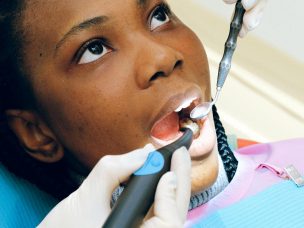Patients with alopecia areata (AA) may be at a higher risk of mental health problems, such as anxiety and depression. As mental health conditions may have a negative effect on patient satisfaction scores, it is important for clinicians to tailor their communication strategies to address mental health and improve satisfaction in patients with AA.
Patient satisfaction scores have risen to the forefront of consideration regarding optimal healthcare strategies. In patients with alopecia areata (AA), mental health issues may be a concern that is associated with low patient satisfaction. While the association between mental health outcomes and patient satisfaction is not entirely clear, higher patient satisfaction scores may be linked to improved overall patient outcomes in patients with AA.
A study published in JAAD International examined how baseline mental health may be associated with patient satisfaction in adult patients with AA. Researchers examined 543 adults with alopecia areata in the 2004–2016 Medical Expenditure Panel Survey. Using the six-item Kessler Psychological Distress Scale (K6) and two-item Patient Health Questionnaire (PHQ2), researchers assessed mental health burden. The Consumer Assessment of Healthcare Providers and Systems survey was used to determine patient satisfaction.
Results revealed that adult patients with AA had higher rates of positive K6 and PHQ2 scores, indicating an increased mental health burden. Positive K6 and PHQ2 scores were also found to be associated with patient satisfaction. No differences were found in the rates of low patient satisfaction associated with comorbid depression and anxiety.
The authors of the study recommend clinicians screen their patients with alopecia for mental health conditions to identify those more likely to report low satisfaction. Mental health conditions may be underdiagnosed and treated in patients with AA. Comprehensive treatment that addresses mental health burdens is a necessary part of health care for patients with AA. Clinicians may consider implementing a more supportive communication style and promote shared decision- making strategies with their patients affected by AA and associated mental health symptoms.
Source:
Kim, A. B., Cheng, B. T., & Hassan, S. (2022). Association of mental health outcomes and lower patient satisfaction among adults with alopecia: A cross-sectional population-based study. JAAD Int, 8, 82-88. https://doi.org/10.1016/j.jdin.2022.05.011










